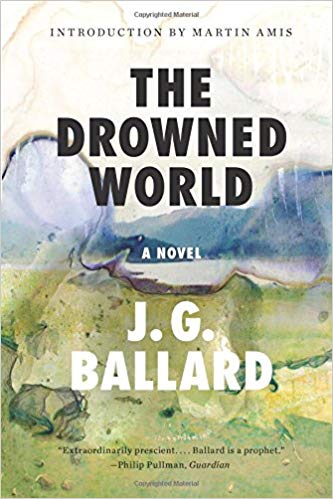According to the BBC news online, we now live in the Anthropocene period, which is a fancy way of saying humans have so altered the planet’s surface that we’ve left traces of ourselves in its permanent geological record. Naturally, the first order of business is to give our recklessness a name. What strikes me most in the article is the paragraph about the fossil records we will leave behind. It seems almost a certainty that as the Earth’s climate changes and sea levels rise, coastal cities will be engulfed in mud and will sink below the waves. I don’t think any of this will happen fast enough to catch us in medias res–not the way Mt. Vesuvius caught the people of Pompeii–so I doubt future archaeologists will be digging up fossilized soccer moms dropping off their kids, or middle-aged dad’s running on treadmills as they do battle with their guts. But future archaeologists (assuming we survive long enough to produce future archaeologists) will find the hollow remains of skyscrapers and mountains of plastic garbage. Writing for the BBC, Howard Falcon-Lang says:
If the Anthropocene does develop into a long-lived period of much warmer climate, then there may be one very small consolation: the fossil record of modern human society is likely to be preserved in amazing detail.
Dr Mike Ellis of the British Geological Survey told BBC News: “As a result of rising sea level, scientists of the future will be able to explore the relics of whole cities buried in mud”.

It reminds me of J.G. Ballard‘s 1962 post-apocalyptic sci-fi classic, The Drowned World. Nearly fifty years ago, Ballard imagined what our world would be like if the climate warmed and the polar caps melted. He didn’t imagine anthropogenic climate change. According to his story, it’s the sun that screws us over. The novel is set in a lagoon over a region formerly known as London which is now submerged well below the water and the muck and the slime. The world is in a state of regression. Mega-flora and mega-fauna have reappeared, which means life for humans has suddenly gotten a lot more dangerous. The planet’s biological regression is mirrored by a human psychological regression. One by one, the novel’s characters slip into a more primitive mental state. I assume Ballard was motivated to write this stuff because he needed to come up with good material for his therapy sessions.
The main character is a scientist named Dr. Robert Kerans who runs a research station in the lagoon. The military has evacuated everyone to Greenland except for a man whose regression has driven him lulu and the de rigueur hot white babe who spends most of her time sunning herself on the balcony of a mostly submerged condo while sipping Singapore Slings and letting her mind turn to rot. Being an honourable Englishman, Kerans can’t leave the pair behind, so he tells the military people to go on without him. As admirable as Kerans intentions, his plan faces two major obstacles: 1) his mind is turning to rot too, and 2) a band of pirates has entered the lagoon with their giant marauding alligators.
The lead pirate is a man named Strangman and he wants to drain the lagoon so he and his men can wander through a soggy Leicester Square, looting and pillaging to their piratical heart’s desire. But first they strong-arm Kerans into an underwater reconnaissance mission. They equip him with diving gear and drop him into the London planetarium. This scene, in particular, sprang to mind as I read the BBC article. I imagined myself in flippers and face mask kicking around the lobbies of sunken buildings.
I don’t live in London. I live in Toronto. As an inland city, Toronto isn’t as vulnerable to permanent flooding. Or maybe it is? There was once a time when Lake Ontario was much bigger than it is now. After the last ice age, melt water flooded the region. Now, every day, thousands of commuters drive up and down the long slope that is the Iroquois shoreline, the place where, for millennia, the waters lapped until they receded to their present levels.
Sometimes it’s fun to stand at the crest of the prehistoric shoreline and stare south to the city’s core. I imagine all of it submerged except for the CN Tower and the top floors of the taller office buildings. I imagine myself paddling a canoe to the 20th floor of the First Canadian Place and using the butt of my paddle to smash a window. Paddling through the broken window, I moor the canoe in a stairwell and climb to the roof with my six pack and a lawn chair. It’s been a tough week playing Mr. Apocalyptic Survivalist and I deserve a break. It’s a lot of work living in the Anthropocene Era.
